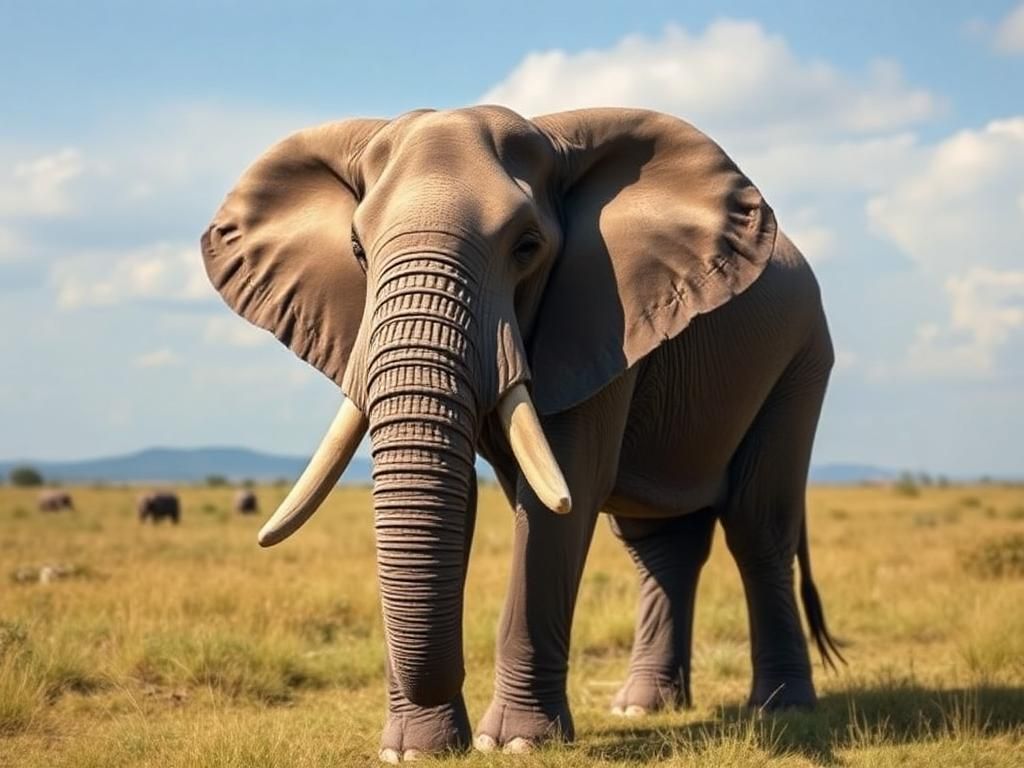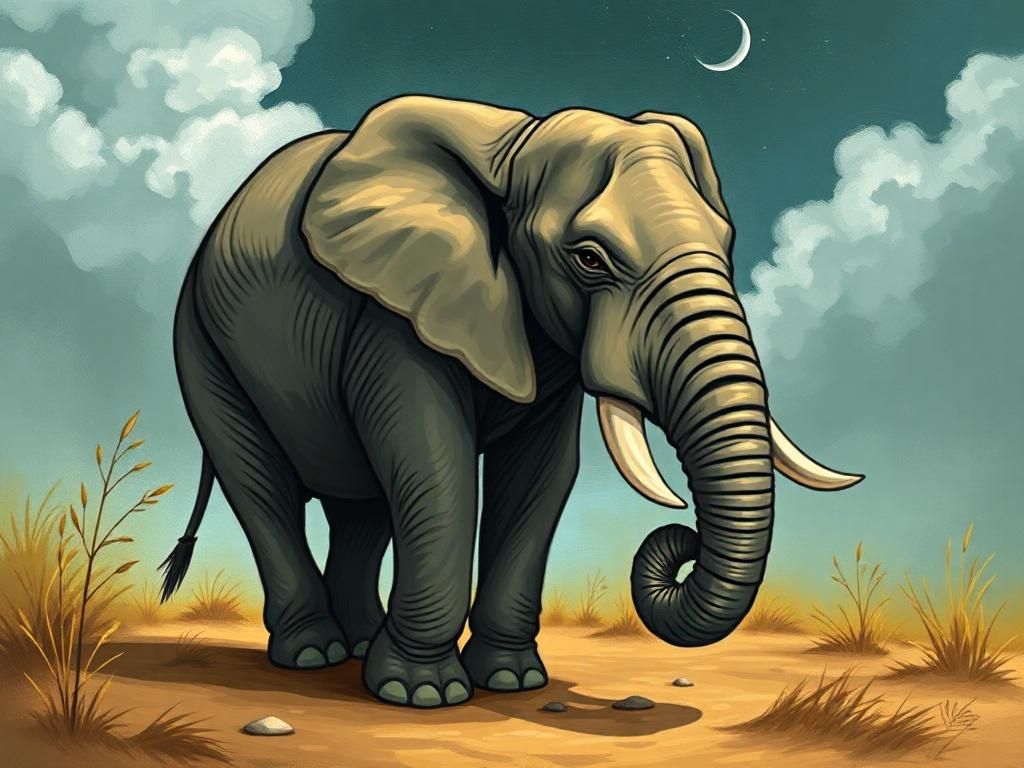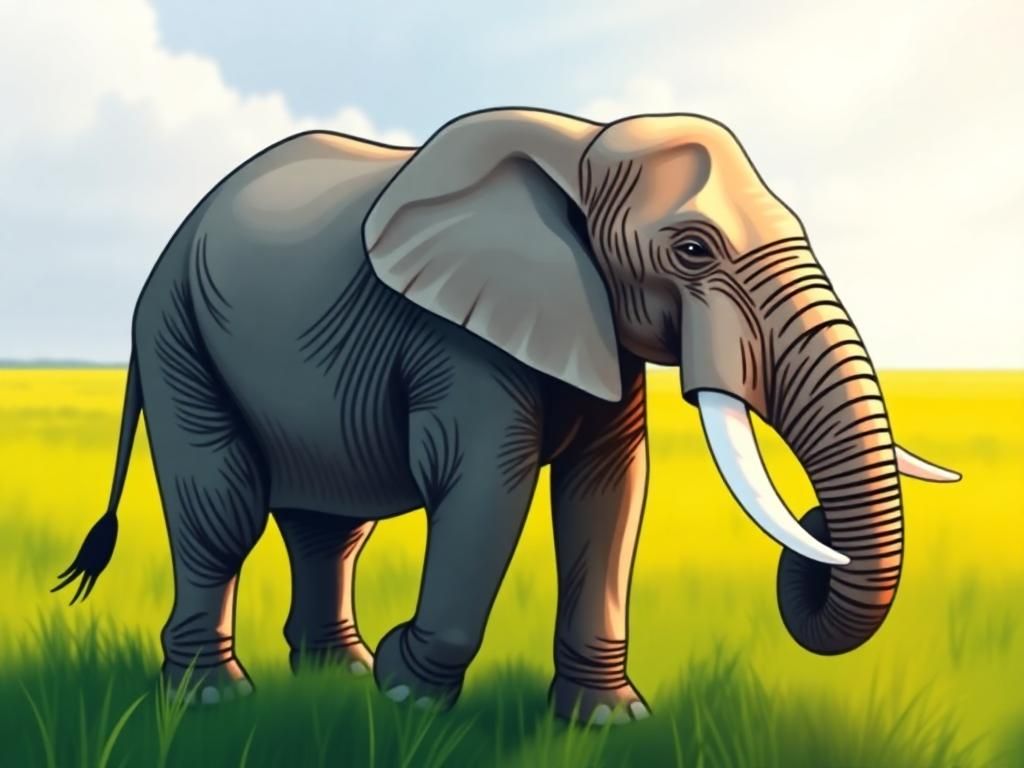Elephants hold immense significance across various cultures and societies, often embodying values and meanings that transcend time. Their majestic presence evokes a sense of awe and reverence, which leads us to ponder what does an elephant signify. Understanding this symbolism can enlighten our perspectives on strength, wisdom, family, and loyalty. This article delves into the historical, cultural, and modern interpretations of elephants, exploring their rich symbolism in art, literature, and psychological realms.
Historical and Cultural Context of Elephants
Elephants in Ancient Civilizations
In ancient civilizations, elephants were not merely animals; they were symbols of power and divinity. In ancient India, elephants played a significant role in royal ceremonies and religious events. They are often depicted in Hindu myths as sacred, embodying attributes of might and grace. Hindu deities, such as Ganesha, who is depicted with an elephant head, represent wisdom and the removal of obstacles, showcasing how integral elephants are to spiritual symbolism.
In ancient Rome and Greece, elephants were utilized in warfare, most notably in the armies of Carthage, where they symbolized formidable strength and superiority on the battlefield. The presence of elephants in these societies highlighted their significant roles in war and conquest, illustrating their multifaceted symbolism.
Elephants in Religion
The spiritual significance of elephants extends beyond Hinduism. In Buddhism, elephants symbolize wisdom, mental strength, and spiritual enlightenment. The story of the Buddha’s birth depicts his mother dreaming of a white elephant, an auspicious symbol of purity and good fortune.
Moreover, in various African traditional religions, elephants are revered as symbols of continuity and ancestor reverence, playing a crucial role in the cultural narrative of many tribes. Understanding these *religious contexts* further enriches our understanding of what does an elephant signify in global traditions.
Symbolism of Elephants
Strength and Power
Elephants are often regarded as powerful creatures due to their impressive size and strength. They embody traditional notions of strength, being capable of uprooting trees and traversing difficult terrains with ease. This physical prowess correlates with leadership and authority, making them symbols of power across various cultures. The phrase “as strong as an elephant” is a widely recognized analogy emphasizing their formidable presence.
Wisdom and Intelligence
Elephants possess remarkable intelligence, displaying behaviors such as problem-solving, empathy, and strong social bonds. Scientific studies have proven their cognitive abilities to recognize themselves in mirrors and exhibit emotions, paving the way for the understanding of elephants as wise beings.
The vibrant stories and myths surrounding elephants often reinforce their image as custodians of wisdom. From folklore portraying elephants as sage figures to contemporary literature showcasing their intelligence, these narratives emphasize the profound link between elephants and human understanding of wisdom.
Family and Loyalty
One of the most captivating aspects of elephant symbolism is their social structures and familial bonds. Elephant herds are matriarchal, led by strong females who nurture and protect their young. This familial loyalty exemplifies the deep connections within their communities, serving as a symbol for the importance of family and loyalty in various cultures.

As we explore the question of what does an elephant signify, the emphasis on family, kinship, and social responsibility becomes clear, transcending cultures and resonating with shared human values.
Elephants in Art and Literature
Visual Arts
Elephants have been a popular subject in visual arts, being represented in paintings, sculptures, and textiles across cultures. In Indian art, elephants are often adorned with vibrant decorations during festivals and are central figures in various forms of classical art. Their portrayal in art highlights the respect and admiration they garner from societies around the world.
Literature and Folklore
In literature and folklore, elephants often embody themes of wisdom, power, and familial love. They appear in numerous fables and stories, such as Kipling’s *The Elephant’s Child*, which furthers the idea of elephants as curious, wise beings. Their presence in works of fiction emphasizes their symbolic importance and illustrates the cultural narratives surrounding them.
Modern Interpretations of Elephants
Elephants as Symbols of Conservation
In contemporary society, elephants have become symbols of conservation and environmental consciousness. As endangered species, they serve as reminders of the fragility of the natural world. Current efforts to protect elephants resonate with broader themes of conservation, urging collective responsibility towards preserving our planet.
Pop Culture and Media Representations
Elephants are frequently depicted in movies, cartoons, and popular media, influencing public perception. From animated classics like *Dumbo* to documentaries showcasing their intelligence, these representations help foster empathy and admiration for these magnificent creatures. Through modern storytelling, elephants symbolize resilience, strength, and the fight for conservation.
The Psychological Impacts of Elephant Symbolism
Emotional Resonance
The symbolism of elephants often resonates deeply with human emotions. Many people form connections with elephants that evoke feelings of nostalgia, empathy, and comfort. The emotional weight of elephants in times of hardship showcases their role as comforting symbols during difficult periods.
Personal and Spiritual Growth

Using the symbolism of elephants can also aid in personal and spiritual growth. Elephants symbolize strength in the face of adversity, offering profound insights for personal development. Practices such as meditation and mindfulness can draw on the strength of elephants, allowing individuals to reflect and grow spiritually.
Conclusion
The exploration of what does an elephant signify reveals a rich tapestry of meanings woven through history, culture, and personal experience. From their depiction in ancient civilizations to their modern conservation status, elephants symbolize strength, wisdom, family, and loyalty. As we reflect on their significance, it is crucial to respect and protect these incredible beings, ensuring that their legacy continues for future generations.
Further Reading and Resources
– Books: “Elephants” by Allen Simpson, “The Elephant Whisperer” by Lawrence Anthony
– Documentaries: “The Last Elephants” and “Elephant Planet”
– Conservation Organizations: [World Wildlife Fund (WWF)](https://www.worldwildlife.org/species/elephants), [Save the Elephants](https://www.savetheelephants.org/)
Call-to-Action
To delve deeper into the symbolism of elephants, consider reflecting on your own experiences with these majestic animals. Share your thoughts and stories related to elephants in the comments below, contributing to the greater understanding of their significance in our lives.
FAQ
1. Why are elephants considered symbols of strength?
Elephants are seen as symbols of strength due to their immense size, physical capability, and significant representation in ancient and modern cultures as powerful beings.
2. How do elephants symbolize wisdom?
Scientific studies demonstrate their cognitive abilities, such as problem-solving and emotional intelligence, while many cultural narratives portray elephants as wise beings.
3. What role do elephants play in family dynamics?
Elephants live in tight-knit matriarchal families, showcasing loyalty, nurturing, and connections that symbolize familial bonds across cultures.
4. How are elephants represented in modern media?
In contemporary media, elephants often appear in films and documentaries, shaping public perceptions regarding their intelligence and advocating for conservation.
5. What are the spiritual meanings associated with elephants?
Elephants symbolize strength, resilience, and spiritual growth, making them powerful figures in meditative practices and personal development.
6. Why are elephants important in conservation efforts?
Elephants serve as crucial symbols for conservation, emphasizing the protection of biodiversity and the importance of preserving natural habitats for future generations.
7. Can elephants help with emotional healing?
Many people find comfort in the symbolism of elephants during tough times, associating their gentle nature with emotional resilience and healing.
8. How can I learn more about elephant symbolism?
Exploring literature, documentaries, and visiting elephant sanctuaries can enhance your understanding of their cultural significance and conservation needs.
9. Are there specific cultural beliefs about elephants?
Yes, various cultures attribute different meanings to elephants, particularly in Hinduism and Buddhism, where they are seen as sacred and wise beings.
10. What are some common myths about elephants?
Many myths highlight elephants’ wisdom, strength, and emotional capacity, reflecting humanity’s fascination and respect for these magnificent creatures.
| Symbolism | Description | Cultural Significance |
|---|---|---|
| Strength | Physical prowess and capability | Leadership and authority |
| Wisdom | Cognitive abilities and emotional intelligence | Spiritual enlightenment |
| Family | Tight-knit matriarchal structures | Significance of familial loyalty |
| Conservation | Symbol of environmental consciousness | Advocacy for biodiversity preservation |
